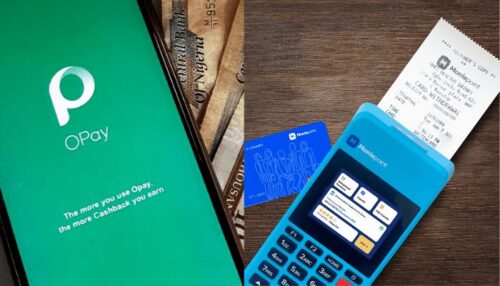
The relationship between Nigerian neobanks and banking agents has been mutually beneficial. Agents act as the physical presence for neobanks, helping them reach customers by opening accounts, processing deposits and withdrawals, and issuing debit cards. In return, agents—who often run separate businesses—earn additional income.This partnership has been instrumental in distributing over 17 million debit cards across Nigeria. Agents leverage their strong community ties to reach customers effectively, bridging the gap between fintechs and unbanked or underbanked individuals.
A Lucrative Model for Agents
Neobanks like OPay and Moniepoint have developed an efficient distribution system for their debit cards. Agents purchase cards for ₦100 and sell them to customers for ₦1,000, earning a 900% profit margin. Additionally, agents receive promotional materials to advertise the cards.Moniepoint, which entered the retail banking sector in 2023, adopted this strategy after seeing OPay’s success in leveraging agents for card distribution. According to Mr. Duke, a POS agent in Ketu, “There’s no business we do with these companies that we don’t see profit.”
Challenges and Distribution Dynamics
Card distribution, while profitable for agents, is a significant expense for neobanks. Agents typically source cards either through official online applications or from card distributors, who often offer better rates. However, agents without distributor connections face higher costs as they must visit fintech offices to obtain cards.For customers without smartphones—who rely on feature phones—the cards are essential for accessing their accounts and performing transactions. This makes agents critical in connecting these users to digital financial services.“Many of our customers cannot register their cards themselves or don’t have time to visit fintech offices. They rely on us to help them,” said a POS agent in Mile 12.
Market-Specific Success
Not all agents find success in selling cards. Sales depend largely on location and demand. Agents in high-traffic areas, such as bus stops or markets, tend to sell more cards compared to those in residential areas. For example, Mr. Duke sells an average of 20 cards weekly due to his strategic position at the busy Ketu bus stop.In contrast, an agent in Ketu reported selling only 69 cards since starting, averaging about three sales per week. This discrepancy highlights the importance of placement and customer traffic in driving sales.
A Resilient Relationship
Despite challenges like a six-week suspension on new customer onboarding imposed by regulatory authorities, card sales have rebounded to pre-ban levels. This indicates a sustained demand for physical debit cards, particularly among users who lack access to smartphones or internet banking.The partnership between neobanks and agents shows no signs of slowing down. “Customers need the cards, and the fintechs need us to sell them. I don’t see this relationship ending anytime soon,” Mr. Duke affirmed.



